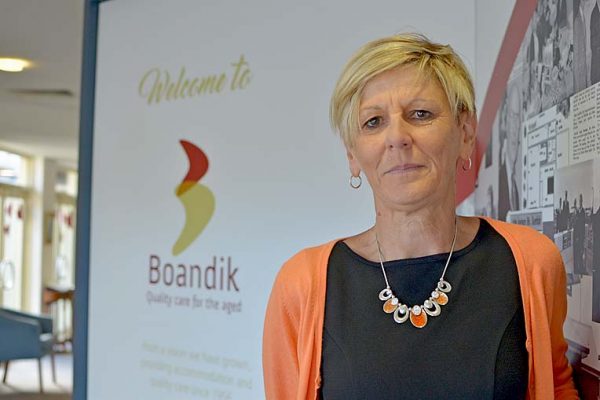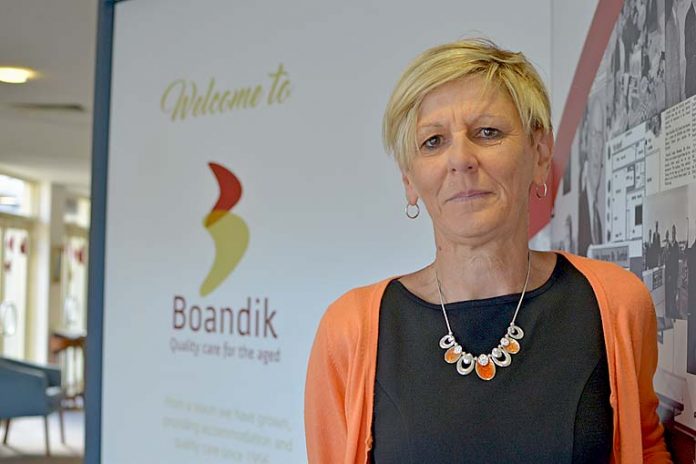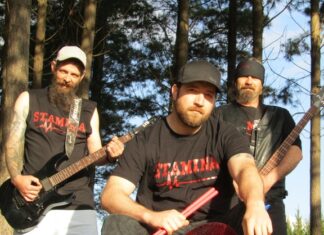
A MOUNT Gambier lawyer and health advocate has called for a probe into whether the Mount Gambier Hospital system is meeting the acute health care needs of the city’s ageing residents.
This follows revelations by the region’s largest aged care provider its residents were not always being treated the same as the general community at the city’s hospital.
Lawyer John Williamson – who raised the issue at the Mount Gambier Chamber of Commerce breakfast meeting this week – described the system as “broken” and called for an investigation.
It is understood the state coroner’s office has recently looked into a number of elderly deaths at Mount Gambier Hospital.
“It is an overlooked sector. Residents from nursing homes are not receiving the best care within the health system,” Mr Williamson told The Border Watch.
These claims were strongly rejected by Country Health SA South East acting regional director Ngaire Buchanan yesterday.
“Mount Gambier residents and people from across the region who present to Mount Gambier Hospital’s emergency department are treated equally and I am proud of the high level of patient care provided by our staff to all patients,” Ms Buchanan said.
“We strongly refute any suggestion that our staff neglect anyone, including aged care residents, who present to the hospital.
“I encourage members of the community who have feedback to speak to our staff who promptly follow up any issues that arise.”
According to figures released yesterday, 305 residents from Mount Gambier’s three privately-run aged care facilities presented for treatment to Mount Gambier Hospital’s emergency department between July 2017 and the end of January.
But Mr Williamson – who acts as a power of attorney for elderly people – said aged care residents presenting at the hospital with acute health problems were not always receiving the medical care they deserved.
“The system doesn’t always cater for them – residents of nursing homes have a right to medical care,” he said.
He said elderly people deserved to be treated the same as the general public and claimed some had been sent back to nursing homes without receiving adequate medical intervention.
Mr Williamson – who had witnessed the problem first hand through his legal work – also warned the issue was exacerbated when an elderly person did not have a “strong advocate”.
“Elderly residents are being neglected by the system, which needs an overhaul and more resources,” he said.
“There is a feeling that once people go into the aged care homes, they are no longer part of the medical system and the aged care facilities will look after them.”
But Mr Williamson said aged care homes did not have the resources or medical staff to respond to acute medical issues.
While general practitioners visited aged care facilities, he said they could not always respond to acute health problems.
He said he was also concerned there were no mental health services available for people in aged care homes, including those living with dementia.
The lawyer – who has been outspoken on a number of regional health system issues – also claimed the hospital was reluctant to transfer elderly patients via the Royal Flying Doctor Service.
Boandik chief executive officer Gillian McGinty – who was the guest speaker at the business breakfast – said she was “passionate” about the issue.
“It is something I have tried to fight for, for a long time,” Ms McGinty said.
“When our clients do have to go out to accident and emergency, they are treated as if they shouldn’t be there really because they live in residential aged care.
“One of the things the health services need to realise is that those people are still part of the community.
“Just because they live with us and they do have some people there assisting them, they still need some acute services.
“It is exacerbated because we have that extra step about ‘you should be able to keep them at Boandik, they shouldn’t need to access these services because they are not part of the community’.”
Ms McGinty said Boandik would like to be able to provide all medical services to clients within its residential homes, but unfortunately it did not have the qualified staff.
“We are extremely fortunate to have excellent support from the medical clinics in Mount Gambier providing medical services to clients in our homes,” she said.
“Unfortunately residents present with acute issues at any time of the day or night and the general practitioners are not available 24-hours a day, seven days a week.”
She said a trial of emergency care paramedics from SA Ambulance Service some years ago was a great support for staff and managed a number of acute issues within the residents’ home.
This service has been discontinued in Mount Gambier.
“The people living in residential care are part of the Mount Gambier community and should have access to the same services as every other person – this does not always occur,” Ms McGinty claimed.
“Often our qualified nursing staff are challenged by medical professionals as to why we are seeking their services when the people live in residential care.
“Residential aged care is a place people move to ‘live’ and to have a good quality of life, they need the support from medical services to be able to achieve this.”
Like a number of other people in the community, Ms McGinty said Boandik residents also found it difficult to access specialist services.
“In a number of instances, like access to some funded services, people living in residential aged care are precluded from the service as ‘they are not living in the community’,” she said.
“This is extremely frustrating for the residents, families and for Boandik as we are trying to enable every person to live as they choose.”
Ms McGinty also revealed there were limited mental health services available for their residents.
“There is nothing available for older people, in fact trying to access mental health services for older people is just a nightmare.”








